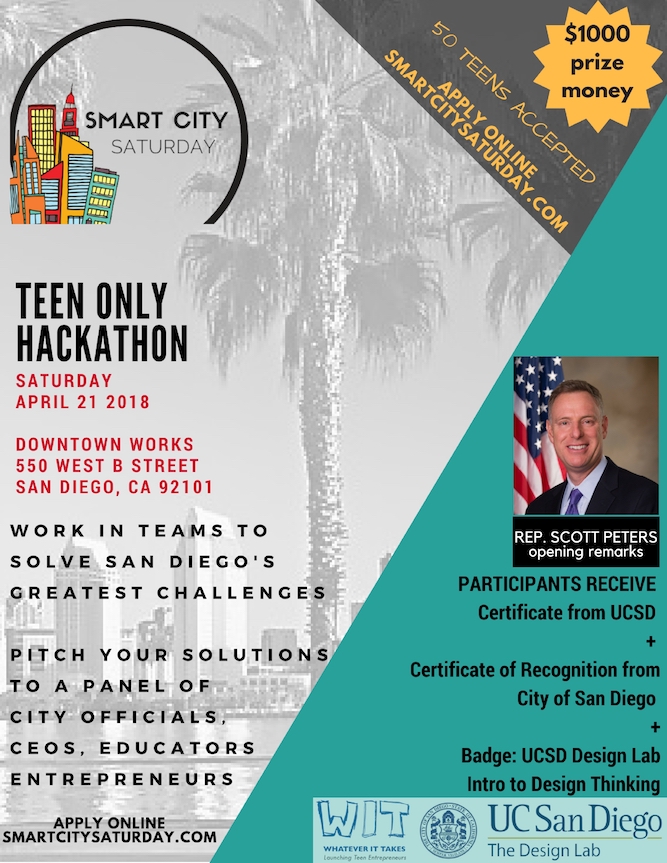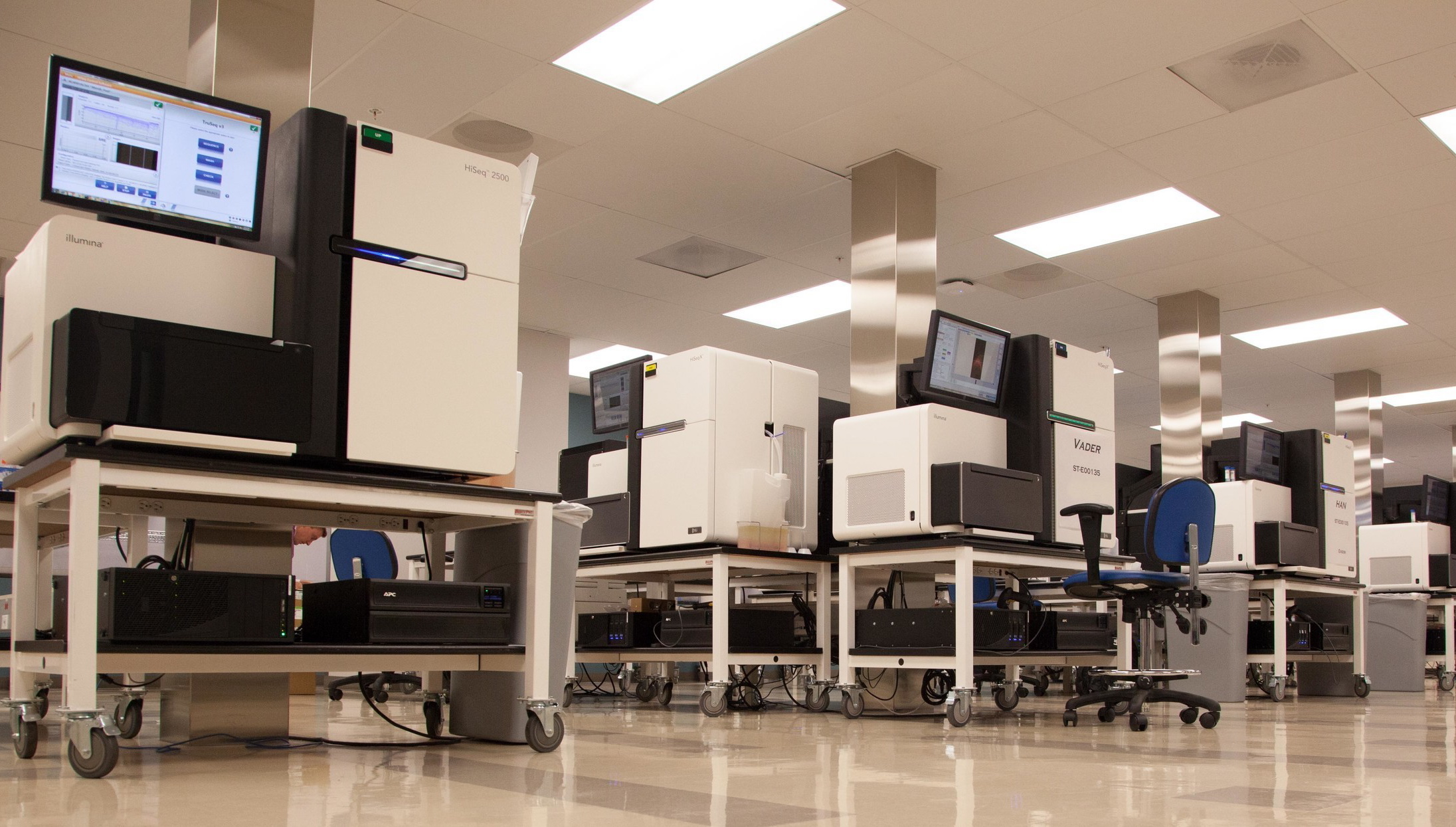Daily Business Report-April 20, 2018
Austin Choi-Fitzgerald is a leading expert on modern slavery perpetrators. (Photo courtesy of the University of San Diego)
USD Assistant Professor Named to UK
University to Conduct Anti-Slavery Research
Austin Choi-Fitzpatrick, an assistant professor at the University of San Diego Joan B. Kroc School of Peace Studies, has been recruited to a unique research team at the University of Nottingham, United Kingdom. A leading expert on modern slavery perpetrators, Choi-Fitzpatrick will continue conducting cutting-edge anti-slavery research with the University of Nottingham’s Rights Lab. Choi-Fitzpatrick will join the Rights Lab as associate professor of Human Rights and Social Movements in the School of Sociology and Social Policy while also maintaining his faculty position at the Kroc School as assistant professor of political sociology.
Home to leading contemporary slavery experts, the University of Nottingham Rights Lab has built the world’s first large-scale research platform to end slavery. Their work centers on leveraging the Sustainable Development Goals to end slavery by 2030. With governments, businesses, and non-profit organizations, they are designing new research-led antislavery interventions to help achieve this ambitious goal.
“Austin’s unique research looks at the role of contemporary slaveholders that are challenged by contemporary anti-slavery movements – an area which is rarely addressed by scholars of slavery or social movements,” said Kroc School Dean Patricia Marquez, PhD. “The Kroc School is very proud of Austin’s accomplishments and grateful for the unique contributions he makes to our students and their education. This appointment will allow him to access a plethora of support for his research, and eventually will contribute to eradication of slavery as we know it,” added Marquez.
“As social movement scholars, we write histories and assessments of the movements themselves, and we rarely have access to perpetrators or the powerful people who movements challenge,” says Austin. “As scholars of slavery and freedom we tend to focus on victims and survivors, on laws and legislation, but to end slavery for good we need to explain what drives slaveholders. Just think about the American Civil Rights Movement. Everybody knows about Martin Luther King, Jr, but we know almost nothing about the segregationists he was up against.”
By collaborating with the University of Nottingham’s Rights Lab, Choi-Fitzpatrick will share the rare data he has collected during his extensive research on perpetrators and survivors. The decision to share his data was not taken lightly. In fact, it was a difficult decision for Choi-Fitzpatrick. In the end, he agreed to do so because he believes sharing data will help like-minded researchers achieve their mutual goal of understanding and ending slavery. “My work was funded by the National Science Foundation,” Austin says, “which means the public made the research possible. Universities are a public good, and I hope my work is useful to policymakers and activists working to make the world a better place.”
Prior to academia, Austin helped coordinate national outreach at the advocacy group Free the Slaves. He earned his PhD in Sociology from the University of Notre Dame, where he was Assistant Director of the Centre for the Study of Social Movements and Social Change. He was previously founding faculty at Central European University’s School of Public Policy.
In the book What Slaveholders Think: How Contemporary Perpetrators Rationalize What They Do, Austin draws on interviews with contemporary slaveholders to explore the way they feel about emancipatory movements. In his new book, Protest Tech: How Social Movements Use Disruptive Technology, he explores the ways movements use tools and technologies to bring about social change. With a research team based in both California and Nottingham he has started a new book project that compares stories of survivors and perpetrators, asking what we can learn about how human rights violations pass into collective memory.
As a member of the Rights Lab he will be continuing his work on contemporary slavery and exploring the use of new technologies to tackle intractable human rights violations, the role of photography in anti-slavery movements, and other issues.
On joining the Rights Lab, Austin said: “In tackling slavery Nottingham has demonstrated a serious commitment to answering some of the really big questions of our age – why do we oppress one another? And how can we build a world with freedom for all? I’m honored to be a part of such an ambitious and important initiative.”
The Rights Lab is a University Beacon of Excellence that brings together over 100 scholars to deliver research that helps to end global slavery by 2030.
_________________

Qualcomm to Lay Off 1,231
Employees Across San Diego County
Qualcomm Inc. is planning to lay off 1,231 employees in San Diego County, the company confirmed in a letter delivered overnight Wednesday to city and county officials. The San Diego-based wireless pioneer, which narrowly escaped a takeover by Broadcom earlier this year and now faces possible antitrust action by China, said the layoffs would begin “on or about” June 19.
“As part of the cost reduction plan announced in January, Qualcomm is conducting a reduction of our full-time and temporary workforce,” a company spokesperson told the financial media. The layoff number was provided in a letter to San Diego Mayor Kevin Faulconer and Kristin Gaspar, chair of the San Diego County Board of Supervisors, under the federal Worker Adjustment and Retraining Notification Act.
A separate letter advised officials in Santa Clara County in Northern California of an addition 269 layoffs. Qualcomm has approximately 13,000 employees in San Diego County and 38,000 worldwide. It last had layoffs in 2015.
The company’s stock closed at $52.57 on Thursday, down $2.66.
_________________
Cubic Corporation to sell its Cubic
Global Defense Services Business
Cubic Corporation announced Thursday that it has entered into a definitive agreement to sell its Cubic Global Defense (CGD) Services business to Valiant Integrated Services for $135 million cash plus $3 million of contingent consideration tied to certain contract wins expected over the next 12 to 24 months.
“Cubic is focused on maximizing long-term value for our shareholders by delivering superior value to our customers,” said Bradley H. Feldmann, chairman, president and chief executive officer of Cubic. “We regularly evaluate our portfolio to ensure we are devoting our resources to strategic markets where domain expertise, innovation and technical competency enable us to build market-leading positions with strong growth potential and higher margins. The sale proceeds will provide us with increased financial flexibility to pursue profitable growth opportunities in those markets.”
_________________
First Quarter Report
San Diego Companies Receive Record-High
Venture Capital Investments of $594 Million
Venture capital activity surged in the first quarter of 2018, setting a record for single quarter investment volume at $594 million, according to data from CBRE Research, PwC/CB Insights MoneyTree Report, Pitchbook and Mattermark. The previous record was $539 million set in Q4 2015. This comes on the heels of an annual record set in 2017. Despite the higher dollar volume, deal count was lower than average at 23 deals.
M&A activity in San Diego continued to mirror the national trend with 28 known M&A deals in Q1 alone. This figure includes announced or completed deals involving San Diego companies either as the acquirer or the acquired. Qualcomm made international headlines as Broadcom attempted to acquire the iconic San Diego company, but the effort was thwarted by an investigation from the U.S. Committee on Foreign Investment, which cited national security threats if the acquisition succeeded (via SEC).
The largest deal this quarter went to Silvergate Capital Corporation, a UTC-based commercial bank that received $114 million venture funding from cryptocurrency venture capital firm Digital Currency Group (DCG). The announcement noted that the funding would be used to fund the company’s fintech ventures, as Silvergate was an early adopter of Bitcoin-related financial services (via PR Newswire).
To download the full VC report, click here
_________________
San Diego’s Kratos to Back Dynetics in 3rd
Phase of DARPA ‘Gremlins’ UAV Contract
Kratos Unmanned Aerial Systems Inc., a subsidiary of San Diego-based Kratos Defense & Security Solutions, has been selected to support Dynetics in efforts to further develop a system to facilitate the aerial launch and recovery of multiple unmanned air vehicles under the third phase of the Defense Advanced Research Projects Agency’s Gremlins program.
On the Gremlins program, Kratos is a team member responsible for providing the Gremlin Unmanned Air Vehicles (UAVs) through both development and ultimate production. Under the Phase III contract, Kratos will lead fabrication, structural and subsystem testing, assembly, integration, and test of prototype Gremlin UAVs.
Kratos also will support air vehicle flight tests, recovery tests and system demonstration, as well as planning for potential future capabilities and ultimately the fielding of an operational system.
_________________
Center Releases 2018 Quality of Life
Assessment for San Diego Region
The Center for Sustainable Energy’s Equinox Project has released the 2018 San Diego Regional Quality of Life Dashboard, which assesses top economic and environmental indicators to gauge the region’s progress toward sustainability. Overall, the data shows life in San Diego communities has improved over the past year, but in some areas issues are floundering and require government and community action.
In transportation, this year’s dashboard reports that even though more local commuters are using alternative means and slightly fewer are driving alone, the number of unhealthy air quality days increased 48 percent compared to 2016. Results for energy use show a 2 percent decrease in the average household’s electrical consumption, while the booming solar sector recorded a 36 percent slump in installations and added solar capacity.
For the full report, click here
_________________

Developer Publishes Preliminary Master
Plan for 5,000-Acre Baja California Resort
ProGreenUS Inc., a San Diego-based company with land development projects in Baja California, Mexico, has published the preliminary master plan drawing and presentation materials for Cielo Mar.
Located in the Bay of Rosario, on the Pacific coast of Baja California, Cielo Mar is being planned as a totally green, 5,000-acre resort-style vacation and retirement community. With a year-round climate very similar to San Diego, this planned development gets its name from “cielo,” meaning “heaven,” and “mar,” which means “sea” — making Cielo Mar “Heaven By The Sea.”
A 3D virtual tour video and drawing provide an overview of the development plan, and a slide presentation describes the general content of areas within the development.
To view the plan and presentation, visit: https://www.cielomarbaja.com/master-plan/
_________________

Shea Homes to Unveil New Model
Homes for One Oak in Olivenhain
Shea Homes San Diego on April 21 will unveil new model homes at One Oak in Olivenhain, a project of 28 new luxury homes at 3560 James Court.
The grand opening celebration runs from 11 a.m. to 3 p.m. and includes light bites, live music and the presentation of model homes showcasing both single-level and two-story floor plans. For more information, call 760-547-8770.
Single-level and two-story homes at One Oak range from 4,120 to 5,875 square feet and offer up to five bedrooms, 5.5 baths and three- to four-car garages. Balconies and courtyards, plus covered rooms and decks are featured. Energy-saving features include zoned heating and air conditioning, tankless water heaters, and an on-demand pump for quick-access hot water in kitchens and master baths. Conduits are provided for a future solar program, as well as a future EV charging station.
_________________
Mortgage Denial Rates Fall, But Racial Gap Persists
Mortgage applications are denied at the lowest rate in the past 20 years, yet a stark divide remains between potential homebuyers of different racial groups, according to data from the Home Mortgage Disclosure Act.
Nationally, the share of applicants who are denied for conventional mortgages has fallen to 9.8 percent, down from 18.1 percent in 2007.
Even though a smaller share of loan applicants overall are denied, white or Asian borrowers are more likely to be approved for a mortgage than black or Hispanic borrowers. In 2016, 8.1 percent of white applicants were denied for a conventional loan, as were 10.4 percent of Asian applicants. By comparison, 20.9 percent of black borrowers and 15.5 percent of Hispanic borrowers were turned down for a loan.
For all groups, denial rates are down sharply from 2007. In 2007, 34.3 percent of black applicants and 30 percent of Hispanic applicants were denied for mortgages. White and Asian borrowers were denied 12.7 percent and 16.2 percent of the time, respectively.
The persistent disparity among races also is evident in homeownership. Black homebuyers had the least purchasing power last year – they could afford 55 percent of homes for sale, while white homebuyers could buy about 78 percent of listed homes.
_________________
Molecule that Dilates Blood Vessels
Hints at New Way to Treat Heart Disease
Scientists at The Scripps Research Institute have identified a protein, called GPR68, that senses blood flow and tells small blood vessels called arterioles when to dilate. The researchers believe medications that activate GPR68 could one day be useful to treat medical conditions, including ischemic stroke.
_________________
Prominant Academics Call for More Research
and Financial Support of Forensic Science
With forensic science facing mounting scrutiny as it plays an increasingly prominent role in the administration of justice, six scientists who recently served on the National Commission on Forensic Science are calling on the scientific community at large to advocate for increased research and financial support of forensic science as well as the introduction of empirical testing requirements to ensure the validity of outcomes. Their call to action appeared in the Proceedings of the National Academy of Sciences the week of April 9, 2018.
_________________
Gubernatorial Appointments
Albert Martinez
Albert Martinez, 42, of Escondido, has been appointed to the Collateral Recovery Disciplinary Review Committee by Gov. Jerry Brown. Martinez has been president and chief executive officer at Challenge Recovery Inc. since 2010. He is a member of the California Association of Licensed Repossessors. The position does not require Senate confirmation and the compensation is $100 per diem. Martinez is registered without party preference.
_________________
Teen Only Hackathon Coming
to Downtown on Saturday
Congressman Scott Peters will present the opening remarks for Smart City Saturday on April 21, a program of the nonprofit WIT-Whatever It Takes. The one-day, teen-only hackathon, engages local San Diego teens and is utilizing design thinking to solve and pitch solutions to our city’s greatest problems.
Smart City Saturday will take place at Downtown Works, 550 West B St. in Downtown San Diego, from 9 a.m. to 6:30 p.m.

Peters will be speaking to 40+ local San Diego teens ranging from 13-18 years old. Teens will be hacking and pitching innovative, sustainable solutions for a variety of issues that are currently affecting the San Diego region, including homelessness, civic engagement of youth, public transportation and education.
Click here to watch a video about SCS that was made by teen film makers.
Mission Federal is supporting the hackathon by serving as a $1,000 Prize Sponsor. Judges will decide the winning teams and distribute the prize money accordingly. The San Diego Registrar of Voters will also be present to sign teens up for early voting registration.



